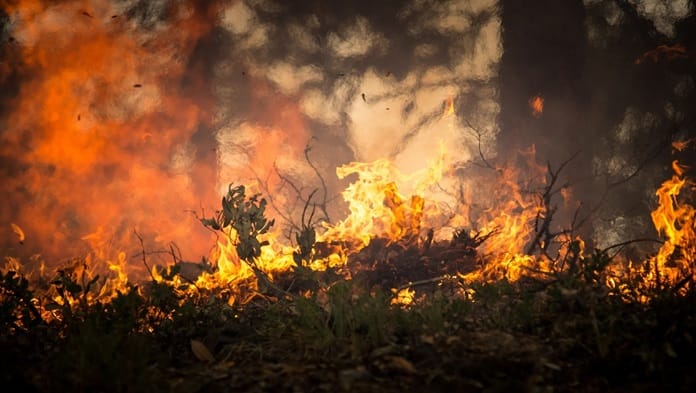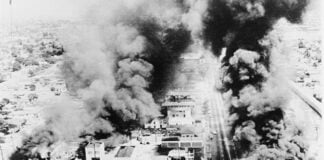The catastrophic wildfires that have engulfed Los Angeles are the city’s worst ever fires—and potentially its worst ever disaster of any kind.
Spurred by drought and the fierce seasonal Santa Ana winds, uncontrollable wildfires broke out across the city and continued on to 9 January with no signs of stopping. Over 130,000 people have been evacuated. More than 2000 homes and businesses have been destroyed.
The worst hit include the coastal Pacific Palisades neighborhood to the west and the inland area around Altadena to the east. Both are 0 per cent contained. At the time of writing on the evening of 8 January, evacuation orders due to a new fire in the Hollywood Hills had reached the busy arterial road Sunset Boulevard.
This unfolding catastrophe is anything but a “natural” disaster. Not only have climate scientists warned for decades about exactly this kind of destruction (while governments marched in lockstep with the fossil fuel industry), the people in power have systematically undermined the social services necessary to get the fires like these under control.
We face not only the climate crisis itself, but a man-made emergency response crisis as well.
Democratic LA mayor Karen Bass recently oversaw a $17.6 million budget cut for the LA Fire Department. It took the second highest departmental cut in the city.
Just last month department Chief Kristin Crowley warned that cuts would take money out of pilot training and helicopter coordination specifically designed for wildfire suppression. There are now fewer bulldozer teams that can construct firebreaks around wildfires.
The “Critical Incident Planning and Training Section”—which develops public emergency response plans—also lost resources.
Bloated police budget
Meanwhile, the LAPD, which gets the most money of any department already, received a $126 million funding boost.
One of the reasons LA has a budget deficit is liability payouts for the police—which don’t even come out of the bloated police budget itself, but a separate pool of funds. This fiscal year it only took them six months to spend double their liability claim budget.
Among the $100 million spent on these LAPD legal settlements, $17.7 million went to the family of a disabled man who was murdered by an off-duty officer in a Costco. $11.8 million was paid out to a man with a traumatic brain injury sustained during a crash caused by an LAPD detective running a red light.
Working people’s tax dollars are being diverted away from essential services to pay for the police and the violent things they do.
One way California tries to compensate for its underfunded fire services is the use of prison labor. Incarcerated people make up nearly a third of firefighting crews across the state. Prisoners’ work is especially dangerous because, unlike their “professional” counterparts, they are typically sent to the frontlines, using their hands to create vegetation-free perimeters that stem the spread of fires.
They get minimal training for this work and they earn as little as $2.90 a day. In November there was a ballot measure that would have ended this kind of prison enslavement, but it lost by 53 per cent.
We need a world that takes the climate crisis seriously. We need governments that invest in the renewable energy transition that’s necessary to mitigate further climate catastrophe. We need fully funded services that can handle the disasters we can now no longer prevent thanks to decades of inaction.
This should be well-trained, well-paid work—not left to the most vulnerable people in our society for little or no pay. Mutual aid networks are doing stellar jobs taking care of evacuated people and providing essential services. But we need more than distribution systems for aid, we need a society run for the planet and the people who live on it, not the wealthy few who are hellbent on destroying it.
By Clare Fester in Los Angeles, 16 kilometres from the Eaton Fire






